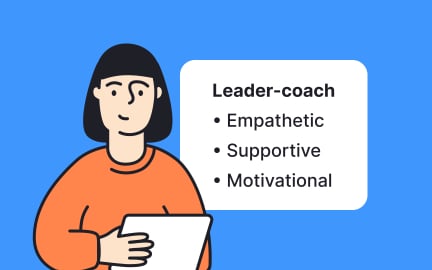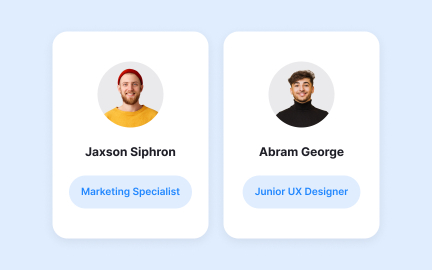Mentoring
Mentoring is the practice of sharing experience and guidance to help teammates grow skills, confidence, and decision-making over time.
What is Mentoring?
Talented team members plateau in their development or struggle with challenges that someone with more experience could help them navigate effectively. You've probably seen promising employees leave because they felt stuck or unsupported in their growth, representing lost investment and missed potential.
Most organizations underutilize mentoring as a strategic tool for talent development, knowledge transfer, and organizational capability building, missing opportunities to accelerate growth while strengthening team relationships.
Mentoring is the structured relationship between experienced professionals and developing individuals focused on knowledge transfer, skill development, career guidance, and strategic thinking advancement through regular interaction, feedback, and experiential learning opportunities.
Organizations with formal mentoring programs see 25% higher employee retention, 50% faster skill development, and 35% better internal promotion success rates compared to companies that rely only on formal training and management feedback.
Think about how successful professionals often credit mentors with providing insights, connections, and perspective that accelerated their careers beyond what they could have achieved independently. Systematic mentoring scales this individual success factor across entire organizations.
Why Mentoring Matters
Your team has knowledge and experience gaps that slow project completion, increase errors, and limit growth potential because informal learning and development happens inconsistently or not at all.
The cost of inadequate mentoring compounds over time. You get slower employee development, higher turnover of promising talent, repeated mistakes that could be avoided, and missed opportunities to leverage senior expertise for organizational capability building.
What effective mentoring delivers:
Accelerated skill development because experienced professionals can share practical insights, industry knowledge, and strategic thinking that would take years to develop independently through trial and error.
Instead of learning everything through mistakes, mentees can benefit from their mentors' experience and avoid common pitfalls while building skills more efficiently.
Higher employee retention through increased job satisfaction, clearer career progression pathways, and stronger organizational relationships that create emotional investment in company success.
Better knowledge transfer that preserves institutional wisdom when senior employees retire or change roles, preventing knowledge loss that weakens organizational capability.
Stronger leadership pipeline development as mentoring relationships prepare high-potential employees for increased responsibility and strategic decision-making roles.
Enhanced innovation through cross-functional mentoring relationships that bring together diverse perspectives and experience levels to solve complex challenges.
Advanced Mentoring Strategies
Once you've established basic mentoring programs, implement sophisticated development and knowledge transfer approaches.
Reverse Mentoring Programs: Create relationships where junior employees mentor senior leaders on technology, generational perspectives, or emerging market trends that complement traditional experience-based mentoring.
Group Mentoring Models: Develop mentoring circles or cohorts where multiple mentees learn from multiple mentors, creating richer perspective sharing and peer learning opportunities.
Cross-Industry Mentoring: Establish mentoring relationships with professionals from adjacent industries or different company sizes to bring external perspective and best practices into your organization.
Project-Based Mentoring: Structure mentoring around specific business challenges or initiatives where mentees can apply guidance immediately while contributing to organizational objectives.
Recommended resources
Courses

Mentorship Mastery

UX Research

HTML Foundations
Lessons

The Benefits of Mentorships

Best Questions to Ask a Mentor








